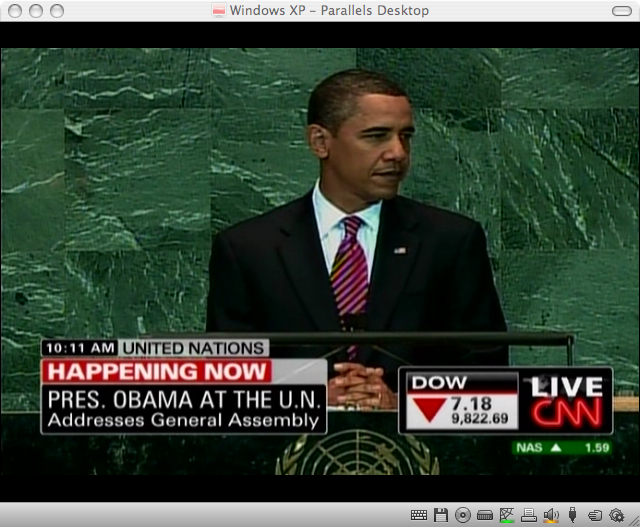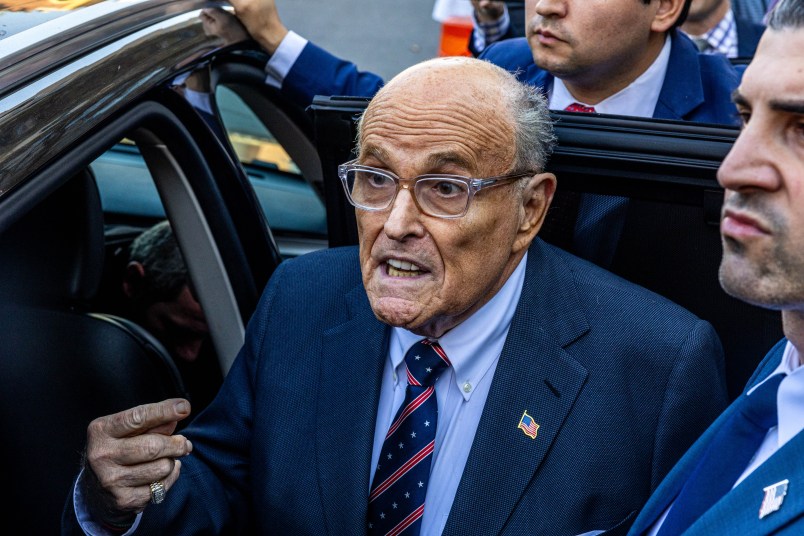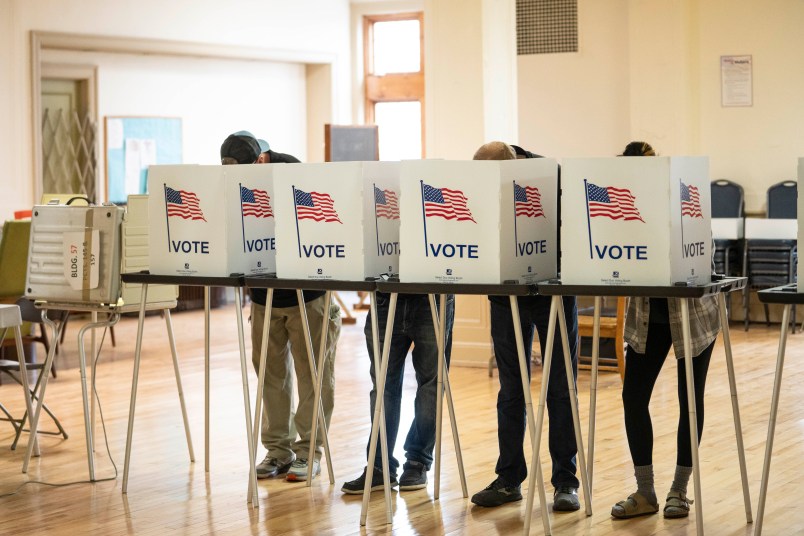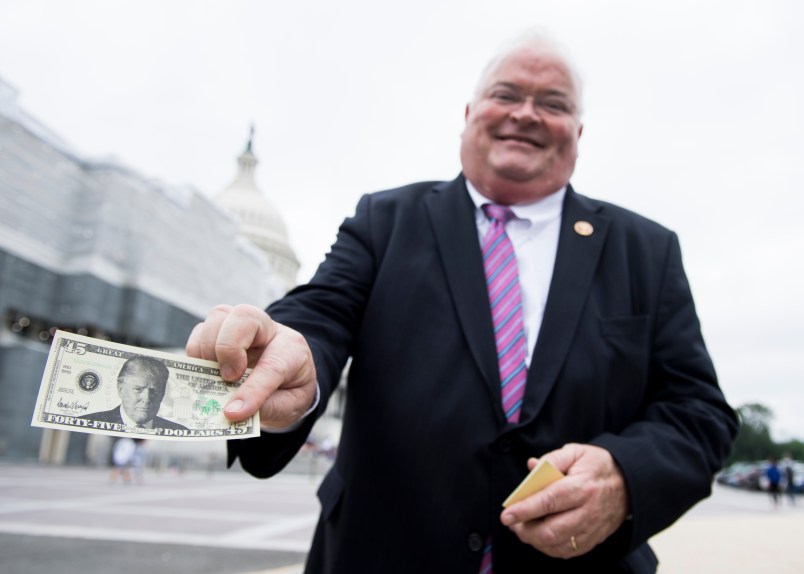Speaking for the first time to the United Nations General Assembly, President Obama attempted to distance himself from the policies of his predecessor and pushed for more international cooperation.
“Democracy cannot be imposed on any nation from the outside,” Obama said, in a significant turnaround from the policies of President George W. Bush. “I admit that American has often been too selective in its promotion of democracy.”
Each nation must find its own path, rooted in its own culture, Obama said, but lauded democracy as “essential.” “Governments of the people and by the people are more likely to act in the broader interests of their own people, rather than the narrow interest of those in power,” he said.
He also called for more cooperation across borders. “When our destiny is shared, power is not a zero-sum game … The time has come for the walls to come down,” he said.
He outlined four “pillars” on which countries must work together: nuclear non-proliferation, the pursuit of peace, environmental preservation and a strong global economy.
On nuclear weapons, Obama reiterated promises to reduce American’s nuclear arms and said that countries who do not follow the non-proliferation treaty will be punished. Although the said this is “not about singling out individual nations,” he said North Korea and Iran specifically “must be held accountable” if they ignore international standards.
On the second pillar, Obama promised, “I will not waiver in my pursuit of peace.”
The assembly burst into applause when he mentioned the war in Sudan, saying “We will pursue a lasting peace in Sudan through support for the people of Darfur.” They also applauded his resolve that he will not accept continued Israeli settlements, and again when he declared his goal of a two-state solution for Israel and Palestine.
“The United Nations was born of the belief that the people of the world can live their lives, raise their families, and resolve their differences peacefully. And yet we know that in too many parts of the world, this ideal remains an abstraction, a distant dream,” he said.
He put environmental preservation in terms of peace as well: “Our efforts to end conflicts will be eclipsed by wars over refugees and resources.” He called on industrialized countries to take the lead in halting climate change, both within their borders and through help to developing nations to make sure they “travel a path of clean development.”
On the economy, the President spoke about eradicating extreme poverty and opening opportunities for more people. He again called for industrialized nations to help poorer countries, and told those poor countries to root out corruption.
Despite flaws in the United Nations — “bickering over outdated grievances” and “struggl[ing] to enforce its will” — Obama called this a “pivotal moment.”
“The United States stands ready to begin a new chapter of international cooperation – one that recognizes the rights and responsibilities of all nations,” he said.









